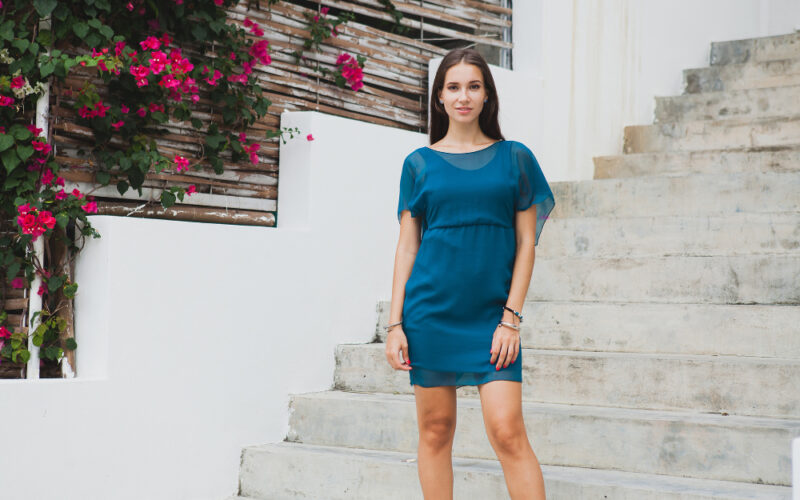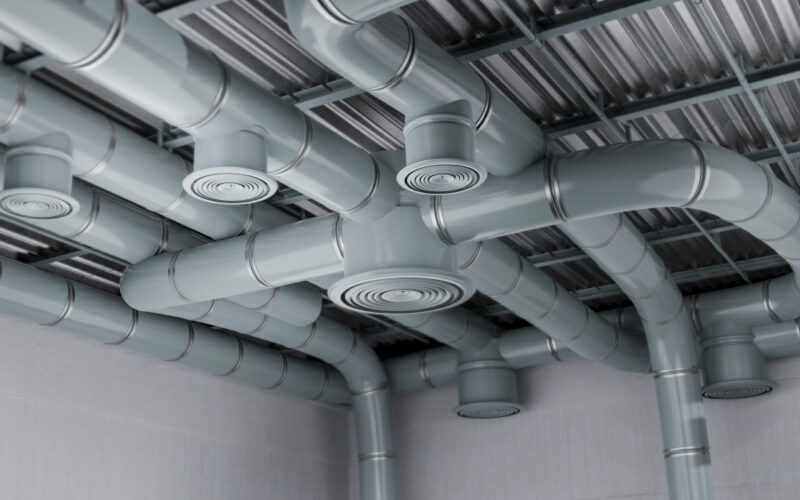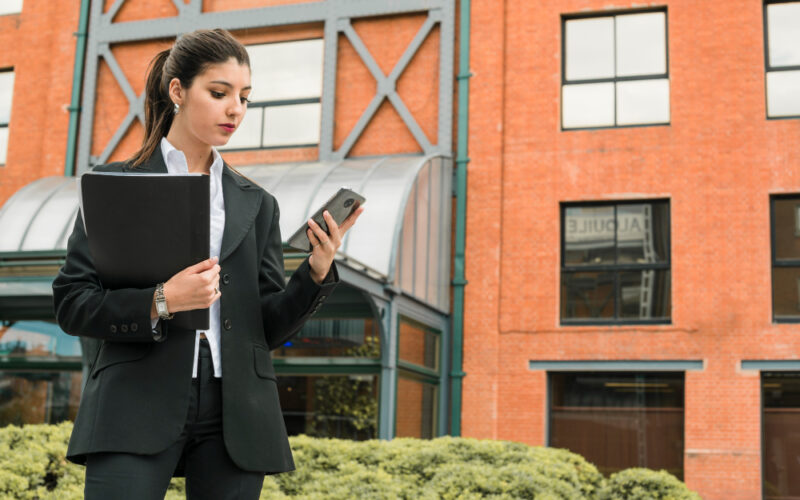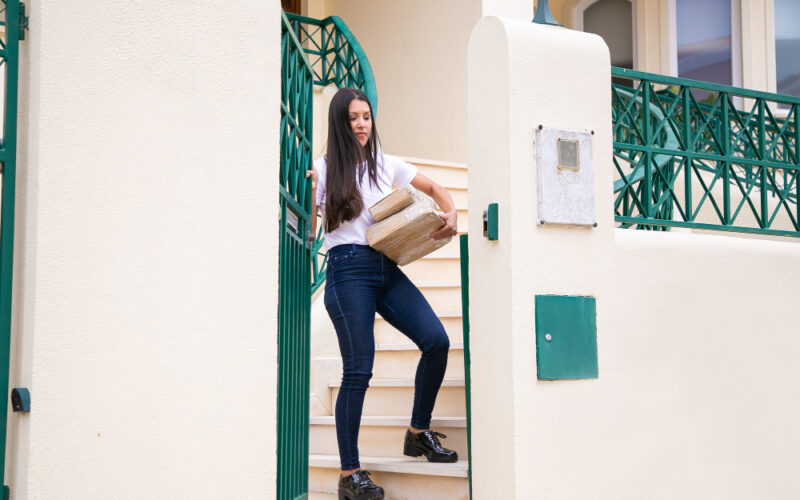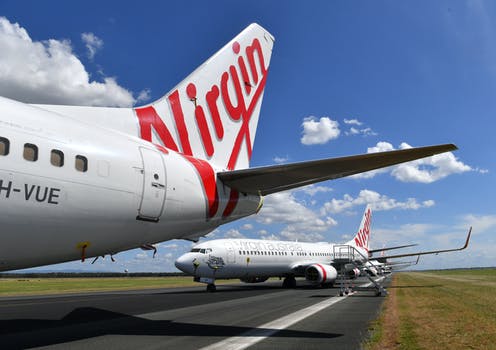
April 21, 2020
On Tuesday Virgin Australia went into external administration after being crushed by a $4.8bn debt mountain and failing to secure a federal bailout.
The decision affects about 10,000 staff and 6,000 contractors who work for the airline, alongside 4,000 suppliers and customers who have bought tickets worth quite $1bn but haven’t yet flown, also as holders of Velocity frequent flyer points.
Here’s what it means and the way it affects you.
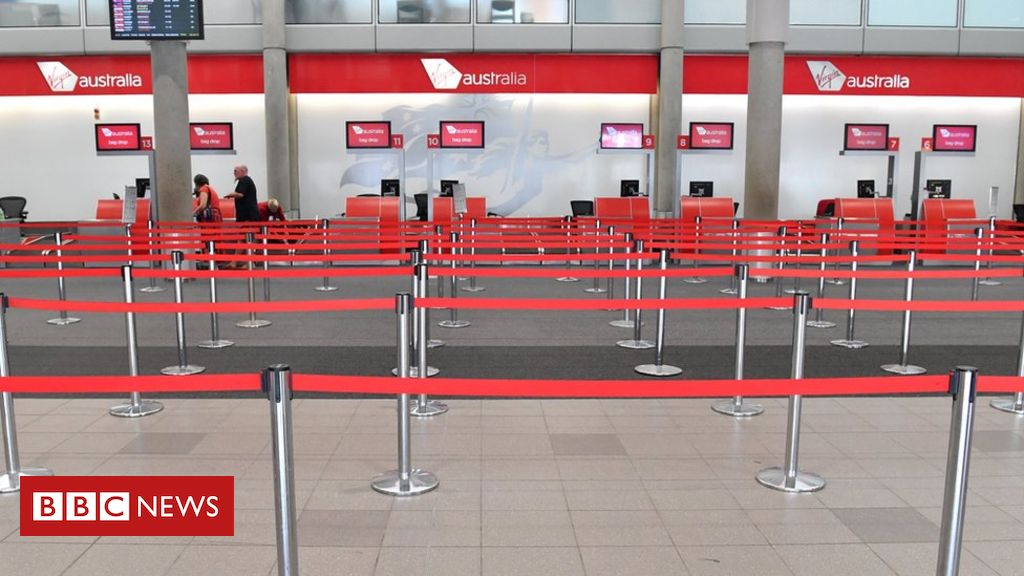 (Image source: Virgin Australia slumps into voluntary administration – BBC News)
What is voluntary administration?
It’s against the law for company directors to still trade once they know the corporate can’t meet its debts as and once they fall due. When directors realise their enterprise is in peril of going broke, they will appoint insolvency practitioners to act as administrators.
The administrators step into the shoes of the administrators and have additional powers, including the power to disclaim contracts or property that are costing money.
They can also negotiate an exit from administration, handing the corporate back to directors, through what’s called a “deed of company arrangement”, or Doca.
This is what Virgin Australia’s administrators, Deloitte, are aiming for.
Under a Doca, debts are often settled for cents within the dollar and different classes of creditors are often treated differently.
This requires the approval of quite half the creditors, both by number and amount of cash owed.
Why wasn’t this avoided?
It could are, if the federal had been willing to place aside its dislike of nationalisation and take a stake in Virgin Australia.
Virgin Australia originally asked for a $1.4bn loan from the govt, which might be converted into shares, but on Tuesday the chief executive, Paul Scurrah, revealed that by Monday this had dwindled to an invitation for $200m.
This was rejected.
When Mary board met on Monday, members were confronted with a $4.8bn pile of debt that needed to be repaid, cash spending of many dollars each day and no government lifeline.
Rather than keep it up and risk trading while the corporate was insolvent, they appointed Deloitte as administrators.
Will all the workers roll in the hay off?
During the amount of administration, Scurrah said there would be no redundancies and every one Virgin employees would keep their jobs.
Most are stood down at the instant and Virgin is accessing the federal government’s jobkeeper scheme (available when companies lose 50% of their revenue). this may ensure each employee receives $1,500 a fortnight.
But there are not any guarantees about what is going to happen to jobs after the corporate is recapitalised and has new owners.
If it survives through the administration, it’s likely to emerge as a really different airline. Scurrah predicted: “We’ll come leaner, stronger and fitter.” That seems like job losses.
Are employees’ entitlements safe?
Scurrah said all Virgin employees’ entitlements, like holiday pay, long service leave and redundancy provisions, were preserved and therefore the company had cash reserves.
Employees rated at the highest of the pile for “circulating assets” like cash, he said. This puts them just behind lenders who hold mortgages over Virgin Australia’s fleet of planes.
But during the collapse of the airline Ansett Australia in 2001-02, entitlements became a serious issue as many long-term employees were owed large sums.
It’s too early to mention what is going to happen to working conditions during a recapitalised airline. which will depend upon the new owners.
Will this leave Australia with only one major airline?
Not if Deloitte’s Vaughan Strawbridge and his fellow administrators can successfully sell the entire airline to a replacement owner.
But even they succeed, the dimensions and shape of Virgin Australia would depend upon what the new owner wanted to try to to with it.
For example, it could cut unprofitable routes that service regional Australia, or international flights.
All this might make Virgin Australia tons less competitive against Qantas.
Will this mean higher prices for flights?
It could, but it’s too early to inform . Again, it depends on how deep the pockets of a replacement buyer are – and the way much the new Virgin Australia wants to require on Qantas.
Experts say that without two airlines slugging it out, prices will inevitably go up.
What about the frequent flyer miles with Velocity?
Velocity isn’t in administration but, after a run on points on Tuesday, it froze redemptions for four weeks.
Strawbridge says the speed business may be a valuable a part of Virgin Australia and he’d like better to sell it along side the airline.
Velocity is additionally the source of a number of the company’s debt woes, as in November Virgin Australia raised about $700m in junk bonds to require full control of the points business, which it had partly sold off.
What the points are going to be worth under a replacement owner isn’t clear.
What happens to flights you’ve got already booked or credits for flights cancelled?
Scurrah said people with bookings on Virgin should “expect to fly” once the restrictions on travel are lifted.
The plan was to stay flying during administration, he said.
Scurrah said there was no intention to cancel flight credits which the goodwill related to those credits would be worked through with interested parties. In other words, flight credits are safe for the nonce .
Who might buy the airline?
The administrator has said there are quite 10 interested parties. Names that are mentioned include Ben Gray’s private equity firm, BGH Capital, which has been combing through Virgin’s books. A current shareholder, the Abu Dhabi-backed airline Etihad, is additionally said to have an interest , although with international traffic about pack up by the crisis Etihad has financial strife of its own.
The Queensland government has also offered support, provided the airline retains its headquarters in Queensland, while New South Wales is yet to reveal its hand.
The NSW treasurer has confirmed it’s in discussions with Virgin and therefore the administrator, and would likely insist the airline be based in western Sydney.
Richard Branson’s Virgin Group, which owns 10.42% of Virgin Australia, was willing to place up between $200m and $250m during pre-administration talks and therefore the tycoon has expressed sadness about what went on .
But, as Scurrah noted, his investments in cruising, airlines and hotels overseas mean he will have many pressures on his wealth.
Over the approaching weeks the bidders are likely to coalesce into two or three consortiums that have a true chance of shopping for the airline.
(Image source: Virgin Australia slumps into voluntary administration – BBC News)
What is voluntary administration?
It’s against the law for company directors to still trade once they know the corporate can’t meet its debts as and once they fall due. When directors realise their enterprise is in peril of going broke, they will appoint insolvency practitioners to act as administrators.
The administrators step into the shoes of the administrators and have additional powers, including the power to disclaim contracts or property that are costing money.
They can also negotiate an exit from administration, handing the corporate back to directors, through what’s called a “deed of company arrangement”, or Doca.
This is what Virgin Australia’s administrators, Deloitte, are aiming for.
Under a Doca, debts are often settled for cents within the dollar and different classes of creditors are often treated differently.
This requires the approval of quite half the creditors, both by number and amount of cash owed.
Why wasn’t this avoided?
It could are, if the federal had been willing to place aside its dislike of nationalisation and take a stake in Virgin Australia.
Virgin Australia originally asked for a $1.4bn loan from the govt, which might be converted into shares, but on Tuesday the chief executive, Paul Scurrah, revealed that by Monday this had dwindled to an invitation for $200m.
This was rejected.
When Mary board met on Monday, members were confronted with a $4.8bn pile of debt that needed to be repaid, cash spending of many dollars each day and no government lifeline.
Rather than keep it up and risk trading while the corporate was insolvent, they appointed Deloitte as administrators.
Will all the workers roll in the hay off?
During the amount of administration, Scurrah said there would be no redundancies and every one Virgin employees would keep their jobs.
Most are stood down at the instant and Virgin is accessing the federal government’s jobkeeper scheme (available when companies lose 50% of their revenue). this may ensure each employee receives $1,500 a fortnight.
But there are not any guarantees about what is going to happen to jobs after the corporate is recapitalised and has new owners.
If it survives through the administration, it’s likely to emerge as a really different airline. Scurrah predicted: “We’ll come leaner, stronger and fitter.” That seems like job losses.
Are employees’ entitlements safe?
Scurrah said all Virgin employees’ entitlements, like holiday pay, long service leave and redundancy provisions, were preserved and therefore the company had cash reserves.
Employees rated at the highest of the pile for “circulating assets” like cash, he said. This puts them just behind lenders who hold mortgages over Virgin Australia’s fleet of planes.
But during the collapse of the airline Ansett Australia in 2001-02, entitlements became a serious issue as many long-term employees were owed large sums.
It’s too early to mention what is going to happen to working conditions during a recapitalised airline. which will depend upon the new owners.
Will this leave Australia with only one major airline?
Not if Deloitte’s Vaughan Strawbridge and his fellow administrators can successfully sell the entire airline to a replacement owner.
But even they succeed, the dimensions and shape of Virgin Australia would depend upon what the new owner wanted to try to to with it.
For example, it could cut unprofitable routes that service regional Australia, or international flights.
All this might make Virgin Australia tons less competitive against Qantas.
Will this mean higher prices for flights?
It could, but it’s too early to inform . Again, it depends on how deep the pockets of a replacement buyer are – and the way much the new Virgin Australia wants to require on Qantas.
Experts say that without two airlines slugging it out, prices will inevitably go up.
What about the frequent flyer miles with Velocity?
Velocity isn’t in administration but, after a run on points on Tuesday, it froze redemptions for four weeks.
Strawbridge says the speed business may be a valuable a part of Virgin Australia and he’d like better to sell it along side the airline.
Velocity is additionally the source of a number of the company’s debt woes, as in November Virgin Australia raised about $700m in junk bonds to require full control of the points business, which it had partly sold off.
What the points are going to be worth under a replacement owner isn’t clear.
What happens to flights you’ve got already booked or credits for flights cancelled?
Scurrah said people with bookings on Virgin should “expect to fly” once the restrictions on travel are lifted.
The plan was to stay flying during administration, he said.
Scurrah said there was no intention to cancel flight credits which the goodwill related to those credits would be worked through with interested parties. In other words, flight credits are safe for the nonce .
Who might buy the airline?
The administrator has said there are quite 10 interested parties. Names that are mentioned include Ben Gray’s private equity firm, BGH Capital, which has been combing through Virgin’s books. A current shareholder, the Abu Dhabi-backed airline Etihad, is additionally said to have an interest , although with international traffic about pack up by the crisis Etihad has financial strife of its own.
The Queensland government has also offered support, provided the airline retains its headquarters in Queensland, while New South Wales is yet to reveal its hand.
The NSW treasurer has confirmed it’s in discussions with Virgin and therefore the administrator, and would likely insist the airline be based in western Sydney.
Richard Branson’s Virgin Group, which owns 10.42% of Virgin Australia, was willing to place up between $200m and $250m during pre-administration talks and therefore the tycoon has expressed sadness about what went on .
But, as Scurrah noted, his investments in cruising, airlines and hotels overseas mean he will have many pressures on his wealth.
Over the approaching weeks the bidders are likely to coalesce into two or three consortiums that have a true chance of shopping for the airline.
 (Image source: Virgin Australia slumps into voluntary administration – BBC News)
What is voluntary administration?
It’s against the law for company directors to still trade once they know the corporate can’t meet its debts as and once they fall due. When directors realise their enterprise is in peril of going broke, they will appoint insolvency practitioners to act as administrators.
The administrators step into the shoes of the administrators and have additional powers, including the power to disclaim contracts or property that are costing money.
They can also negotiate an exit from administration, handing the corporate back to directors, through what’s called a “deed of company arrangement”, or Doca.
This is what Virgin Australia’s administrators, Deloitte, are aiming for.
Under a Doca, debts are often settled for cents within the dollar and different classes of creditors are often treated differently.
This requires the approval of quite half the creditors, both by number and amount of cash owed.
Why wasn’t this avoided?
It could are, if the federal had been willing to place aside its dislike of nationalisation and take a stake in Virgin Australia.
Virgin Australia originally asked for a $1.4bn loan from the govt, which might be converted into shares, but on Tuesday the chief executive, Paul Scurrah, revealed that by Monday this had dwindled to an invitation for $200m.
This was rejected.
When Mary board met on Monday, members were confronted with a $4.8bn pile of debt that needed to be repaid, cash spending of many dollars each day and no government lifeline.
Rather than keep it up and risk trading while the corporate was insolvent, they appointed Deloitte as administrators.
Will all the workers roll in the hay off?
During the amount of administration, Scurrah said there would be no redundancies and every one Virgin employees would keep their jobs.
Most are stood down at the instant and Virgin is accessing the federal government’s jobkeeper scheme (available when companies lose 50% of their revenue). this may ensure each employee receives $1,500 a fortnight.
But there are not any guarantees about what is going to happen to jobs after the corporate is recapitalised and has new owners.
If it survives through the administration, it’s likely to emerge as a really different airline. Scurrah predicted: “We’ll come leaner, stronger and fitter.” That seems like job losses.
Are employees’ entitlements safe?
Scurrah said all Virgin employees’ entitlements, like holiday pay, long service leave and redundancy provisions, were preserved and therefore the company had cash reserves.
Employees rated at the highest of the pile for “circulating assets” like cash, he said. This puts them just behind lenders who hold mortgages over Virgin Australia’s fleet of planes.
But during the collapse of the airline Ansett Australia in 2001-02, entitlements became a serious issue as many long-term employees were owed large sums.
It’s too early to mention what is going to happen to working conditions during a recapitalised airline. which will depend upon the new owners.
Will this leave Australia with only one major airline?
Not if Deloitte’s Vaughan Strawbridge and his fellow administrators can successfully sell the entire airline to a replacement owner.
But even they succeed, the dimensions and shape of Virgin Australia would depend upon what the new owner wanted to try to to with it.
For example, it could cut unprofitable routes that service regional Australia, or international flights.
All this might make Virgin Australia tons less competitive against Qantas.
Will this mean higher prices for flights?
It could, but it’s too early to inform . Again, it depends on how deep the pockets of a replacement buyer are – and the way much the new Virgin Australia wants to require on Qantas.
Experts say that without two airlines slugging it out, prices will inevitably go up.
What about the frequent flyer miles with Velocity?
Velocity isn’t in administration but, after a run on points on Tuesday, it froze redemptions for four weeks.
Strawbridge says the speed business may be a valuable a part of Virgin Australia and he’d like better to sell it along side the airline.
Velocity is additionally the source of a number of the company’s debt woes, as in November Virgin Australia raised about $700m in junk bonds to require full control of the points business, which it had partly sold off.
What the points are going to be worth under a replacement owner isn’t clear.
What happens to flights you’ve got already booked or credits for flights cancelled?
Scurrah said people with bookings on Virgin should “expect to fly” once the restrictions on travel are lifted.
The plan was to stay flying during administration, he said.
Scurrah said there was no intention to cancel flight credits which the goodwill related to those credits would be worked through with interested parties. In other words, flight credits are safe for the nonce .
Who might buy the airline?
The administrator has said there are quite 10 interested parties. Names that are mentioned include Ben Gray’s private equity firm, BGH Capital, which has been combing through Virgin’s books. A current shareholder, the Abu Dhabi-backed airline Etihad, is additionally said to have an interest , although with international traffic about pack up by the crisis Etihad has financial strife of its own.
The Queensland government has also offered support, provided the airline retains its headquarters in Queensland, while New South Wales is yet to reveal its hand.
The NSW treasurer has confirmed it’s in discussions with Virgin and therefore the administrator, and would likely insist the airline be based in western Sydney.
Richard Branson’s Virgin Group, which owns 10.42% of Virgin Australia, was willing to place up between $200m and $250m during pre-administration talks and therefore the tycoon has expressed sadness about what went on .
But, as Scurrah noted, his investments in cruising, airlines and hotels overseas mean he will have many pressures on his wealth.
Over the approaching weeks the bidders are likely to coalesce into two or three consortiums that have a true chance of shopping for the airline.
(Image source: Virgin Australia slumps into voluntary administration – BBC News)
What is voluntary administration?
It’s against the law for company directors to still trade once they know the corporate can’t meet its debts as and once they fall due. When directors realise their enterprise is in peril of going broke, they will appoint insolvency practitioners to act as administrators.
The administrators step into the shoes of the administrators and have additional powers, including the power to disclaim contracts or property that are costing money.
They can also negotiate an exit from administration, handing the corporate back to directors, through what’s called a “deed of company arrangement”, or Doca.
This is what Virgin Australia’s administrators, Deloitte, are aiming for.
Under a Doca, debts are often settled for cents within the dollar and different classes of creditors are often treated differently.
This requires the approval of quite half the creditors, both by number and amount of cash owed.
Why wasn’t this avoided?
It could are, if the federal had been willing to place aside its dislike of nationalisation and take a stake in Virgin Australia.
Virgin Australia originally asked for a $1.4bn loan from the govt, which might be converted into shares, but on Tuesday the chief executive, Paul Scurrah, revealed that by Monday this had dwindled to an invitation for $200m.
This was rejected.
When Mary board met on Monday, members were confronted with a $4.8bn pile of debt that needed to be repaid, cash spending of many dollars each day and no government lifeline.
Rather than keep it up and risk trading while the corporate was insolvent, they appointed Deloitte as administrators.
Will all the workers roll in the hay off?
During the amount of administration, Scurrah said there would be no redundancies and every one Virgin employees would keep their jobs.
Most are stood down at the instant and Virgin is accessing the federal government’s jobkeeper scheme (available when companies lose 50% of their revenue). this may ensure each employee receives $1,500 a fortnight.
But there are not any guarantees about what is going to happen to jobs after the corporate is recapitalised and has new owners.
If it survives through the administration, it’s likely to emerge as a really different airline. Scurrah predicted: “We’ll come leaner, stronger and fitter.” That seems like job losses.
Are employees’ entitlements safe?
Scurrah said all Virgin employees’ entitlements, like holiday pay, long service leave and redundancy provisions, were preserved and therefore the company had cash reserves.
Employees rated at the highest of the pile for “circulating assets” like cash, he said. This puts them just behind lenders who hold mortgages over Virgin Australia’s fleet of planes.
But during the collapse of the airline Ansett Australia in 2001-02, entitlements became a serious issue as many long-term employees were owed large sums.
It’s too early to mention what is going to happen to working conditions during a recapitalised airline. which will depend upon the new owners.
Will this leave Australia with only one major airline?
Not if Deloitte’s Vaughan Strawbridge and his fellow administrators can successfully sell the entire airline to a replacement owner.
But even they succeed, the dimensions and shape of Virgin Australia would depend upon what the new owner wanted to try to to with it.
For example, it could cut unprofitable routes that service regional Australia, or international flights.
All this might make Virgin Australia tons less competitive against Qantas.
Will this mean higher prices for flights?
It could, but it’s too early to inform . Again, it depends on how deep the pockets of a replacement buyer are – and the way much the new Virgin Australia wants to require on Qantas.
Experts say that without two airlines slugging it out, prices will inevitably go up.
What about the frequent flyer miles with Velocity?
Velocity isn’t in administration but, after a run on points on Tuesday, it froze redemptions for four weeks.
Strawbridge says the speed business may be a valuable a part of Virgin Australia and he’d like better to sell it along side the airline.
Velocity is additionally the source of a number of the company’s debt woes, as in November Virgin Australia raised about $700m in junk bonds to require full control of the points business, which it had partly sold off.
What the points are going to be worth under a replacement owner isn’t clear.
What happens to flights you’ve got already booked or credits for flights cancelled?
Scurrah said people with bookings on Virgin should “expect to fly” once the restrictions on travel are lifted.
The plan was to stay flying during administration, he said.
Scurrah said there was no intention to cancel flight credits which the goodwill related to those credits would be worked through with interested parties. In other words, flight credits are safe for the nonce .
Who might buy the airline?
The administrator has said there are quite 10 interested parties. Names that are mentioned include Ben Gray’s private equity firm, BGH Capital, which has been combing through Virgin’s books. A current shareholder, the Abu Dhabi-backed airline Etihad, is additionally said to have an interest , although with international traffic about pack up by the crisis Etihad has financial strife of its own.
The Queensland government has also offered support, provided the airline retains its headquarters in Queensland, while New South Wales is yet to reveal its hand.
The NSW treasurer has confirmed it’s in discussions with Virgin and therefore the administrator, and would likely insist the airline be based in western Sydney.
Richard Branson’s Virgin Group, which owns 10.42% of Virgin Australia, was willing to place up between $200m and $250m during pre-administration talks and therefore the tycoon has expressed sadness about what went on .
But, as Scurrah noted, his investments in cruising, airlines and hotels overseas mean he will have many pressures on his wealth.
Over the approaching weeks the bidders are likely to coalesce into two or three consortiums that have a true chance of shopping for the airline.

